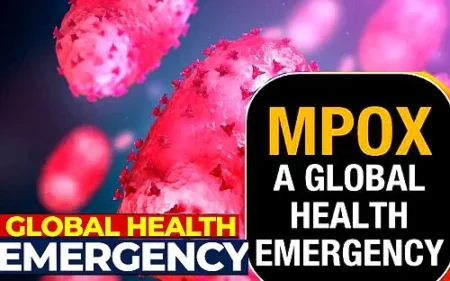Temporary Health Insurance Options
Our assessment indicates that Everest and UnitedHealthcare emerge as the leading performers within the short-term health insurance realm.
We undertook a comprehensive evaluation to identify the premier short-term health insurance providers, considering criteria such as average pricing, coverage options range, and customer grievances levels across multiple insurers.
Temporary Health Insurance companies
- Everest stands out as the preferred option for short-term health insurance, acclaimed for its affordability and low out-of-pocket costs.
- UnitedHealthcare is recognized as the top pick for short-term health insurance and is celebrated for its expansive coverage and abundant benefits.
Short-term health insurance offers a cost-effective solution for individuals navigating job transitions, self-employment, transitioning from parental coverage, awaiting Medicare eligibility, or bridging the coverage gap until open enrollment for an Affordable Care Act (ACA) plan.
While short-term health insurance premiums are often economical, it’s crucial to acknowledge that this coverage might provide fewer benefits than premium health insurance plans. Additionally, obtaining treatment with short-term medical insurance could lead to significant out-of-pocket costs.
What is Temporary health insurance?
According to the National Association of Insurance Commissioners (NAIC), short-term health insurance is a temporary form of health coverage offering limited benefits for one month to three years.
While short-term health insurance plans might offer comparable healthcare coverage to Affordable Care Act health insurance policies, it’s important to note that they do not adhere to ACA standards.
As a result, these plans may not encompass the ten essential health benefits outlined in the ACA, including services like pregnancy and newborn care, mental health and substance use disorder treatments, or prescription drug coverage.
How long does Temporary health insurance last?
In 2018, the Trump administration prolonged the duration of short-term health plans, permitting them to extend for up to three years provided the coverage is renewable.
Nevertheless, in July 2023, the Biden administration introduced a proposed regulation to confine short-term insurance plans to a maximum duration of three months, with the possibility of renewal for an extra month.
Should the new rule be officially enacted, upcoming short-term health insurance policies will be restricted to initial terms of three months or less.
Temporary health insurance laws by state
- Alabama: Up to three years
- Alaska: Up to three years
- Arizona: Up to three years
- Arkansas: Up to three years
- California: Prohibited
- Colorado: Prohibited
- Connecticut: Six months
- Delaware: Three months
- District of Columbia: Three months
- Florida: Up to three years
- Georgia: Up to three years
- Hawaii: Prohibited
- Idaho: Up to three years
- Illinois: Six months
Who can get Temporary health insurance?
Individuals residing in states where temporary health insurance plans are available can seek short-term coverage. However, unlike Health Insurance Marketplace plans, eligibility for short-term plans may be contingent on your current health status.
The process of applying for short-term health insurance entails responding to health-related inquiries. This enables the insurance provider to evaluate the risk of insuring you. If your responses suggest the presence of pre-existing medical conditions, your application may not receive approval.
Once your application is approved and you file a claim for health benefits, the insurance provider will review your medical history. If they find that a pre-existing condition is linked to your health concern, your claim might be rejected, and your policy could be terminated.
What are the qualifications for temporary health insurance?
To be eligible for temporary health insurance coverage, you must fulfil specific medical requirements. Furthermore, this alternative is solely accessible to residents in states where limited-duration plans are available
In contrast to conventional health insurance plans, which typically require enrollment within specific periods, such as open enrollment or special enrollment following a qualifying event, individuals can apply for short-term health coverage at any point.
How much does Temporary health insurance cost?
Our rate examination shows that the average monthly expense for short-term health insurance is $208. The expenses associated with short-term medical insurance are impacted by various factors, including:
- Your age.
- Whether coverage is extended to a spouse or dependent(s) and their ages.
- The scope of services offered by the plan.
- Specific coverage selections you opt for, like deductible, coinsurance, and overall policy coverage.
Before purchasing a temporary health plan, it is vital to review its terms and conditions. This will help you clearly understand what is included and excluded. Generally, lower-cost plans provide less coverage, leading to higher out-of-pocket expenses and lower overall policy limits.
What does Temporary health insurance cover?
Since short-term health insurance plans are not obligated to adhere to ACA regulations, their coverage levels can vary widely.
Readmore starting Online degree Information session June 2024
Short-term health policies might include:
- Doctor’s office visits
- Emergency room visits
- Preventive care
- Urgent care services
It is crucial to compare various short-term plans and thoroughly review each policy to understand what is covered and what is not. This will help you find a strategy that aligns with your needs.
What does Temporary health insurance not cover?
Traditional health insurance plans frequently cover maternity care, substance abuse treatment, and mental health services. Conversely, short-term health insurance policies generally do not cover these medical services.
According to Dr. David Berg, CEO and co-founder of Redirect Health, pre-existing conditions, chronic conditions, long-term care, certain surgeries, and treatments are typically excluded from coverage under temporary health insurance plans.
Redirect Health
When selecting a short-term health insurance plan, it is essential to consider prescription drug coverage. Some plans may include this coverage, while others may not.
In cases where prescriptions are not covered, some insurers may provide a discount card as an alternative. Although the insurer does not pay for medications, the discount card can help lower the cost of prescription drugs.
Temporary health insurance FAQs
1- How long is Temporary health insurance good for?
The length of coverage for a short-term insurance plan varies depending on your chosen plan. Some plans provide monthly coverage, while others can last up to three years. Generally, plans with longer durations tend to be more expensive.
2- Who needs Temporary health insurance?
Short-term insurance can be essential in several situations. It may be a viable option if you’re struggling to find affordable health insurance or lack COBRA coverage after a job loss or termination.
Short-term insurance can provide temporary coverage when transitioning between jobs or waiting to become eligible for spousal health insurance.
Moreover, individuals under 30 or those facing financial difficulties who cannot afford catastrophic health insurance might find short-term health insurance a suitable alternative.










